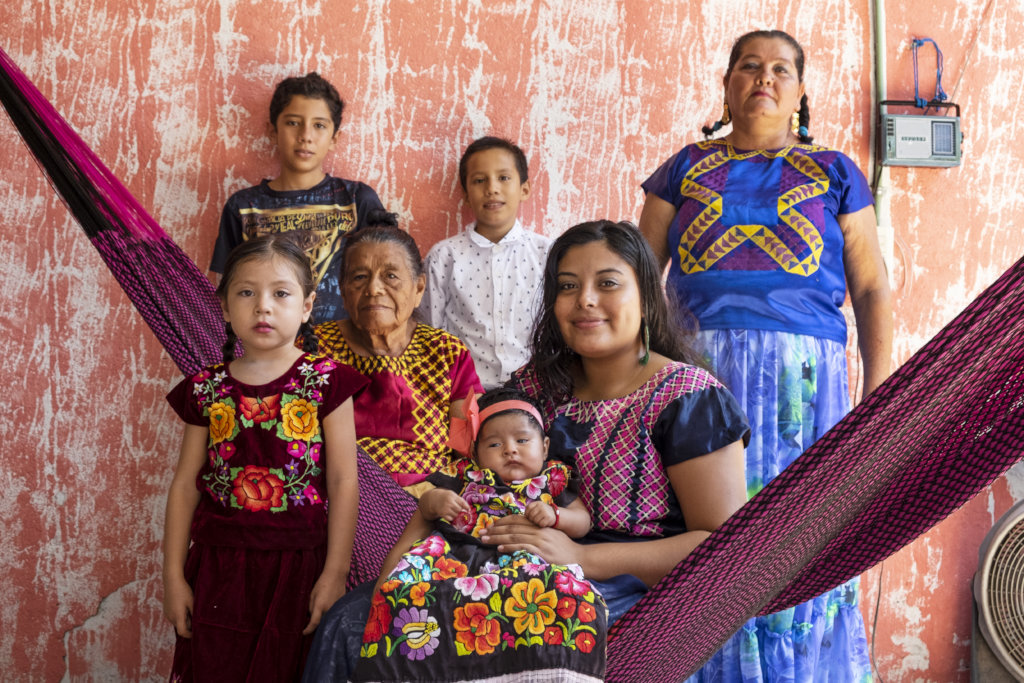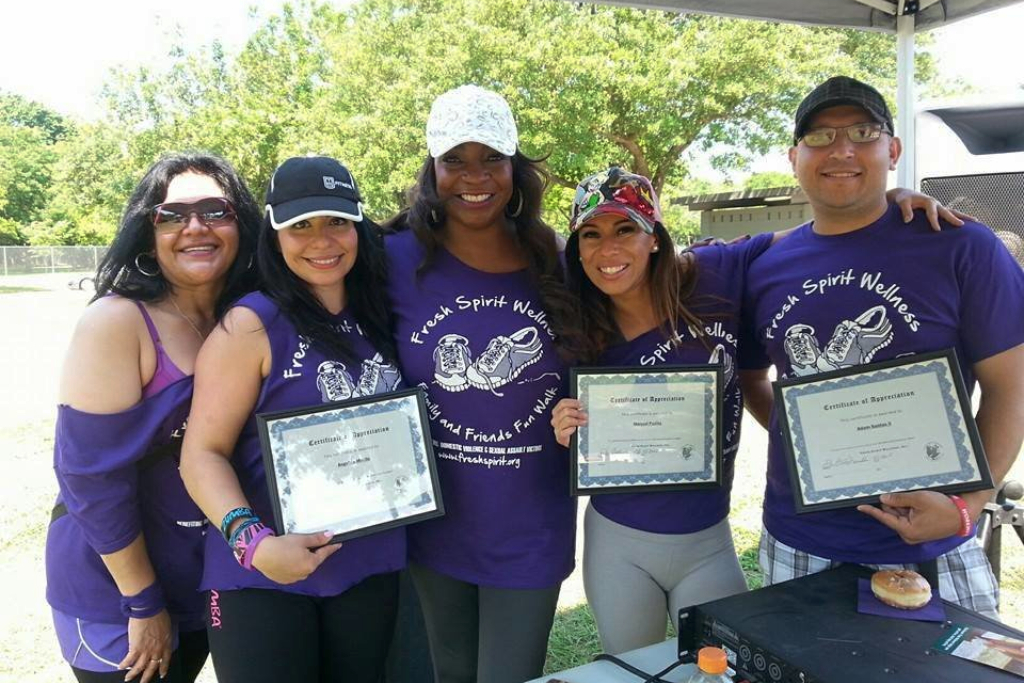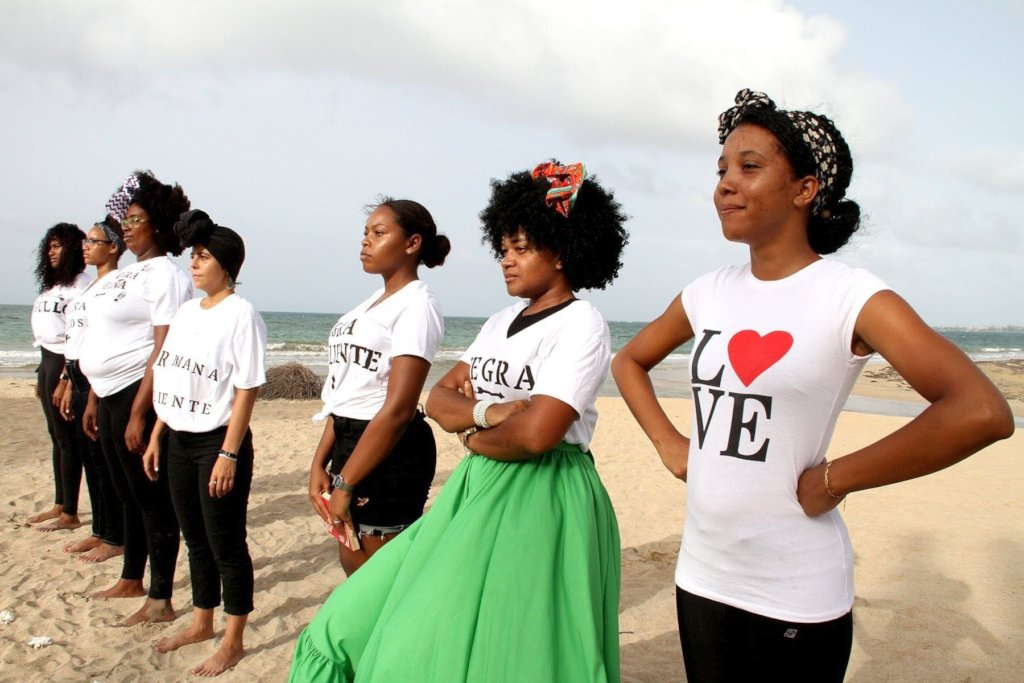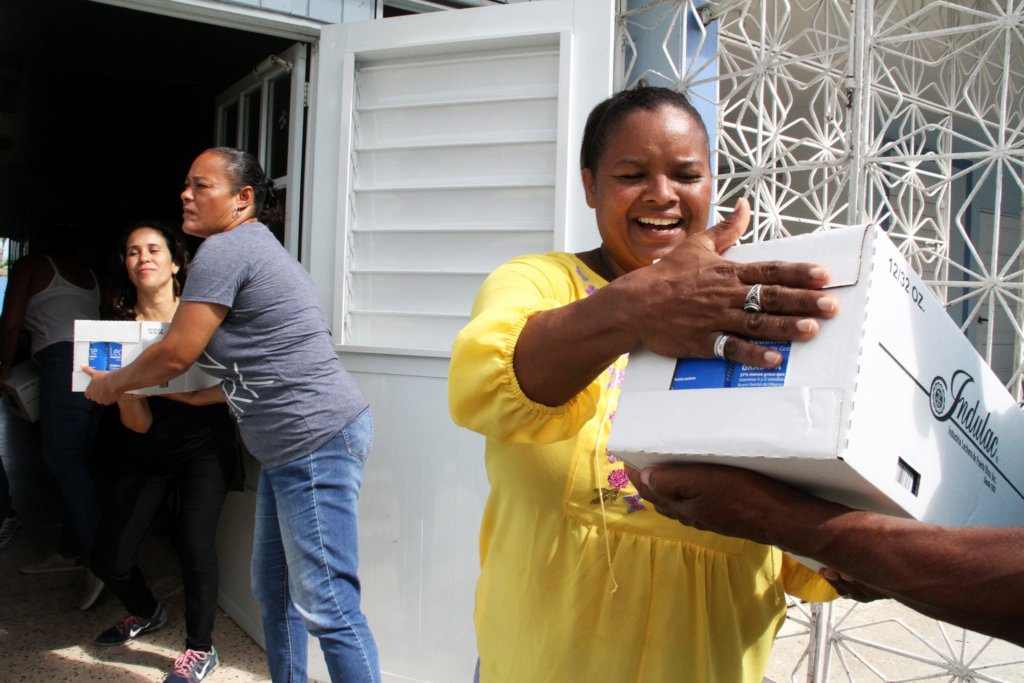Women are often excluded from decision-making and leadership, but including women makes entire communities more resilient.
I spent my formative years in the development profession surrounded by women—from Haitian doctors working to treat and prevent cholera to Senegalese entrepreneurs building their businesses after climate change forced them to pivot from their traditional ways of life.
Women are powerful agents of change, driving disaster response and sustainable development around the world. Yet, women are systematically denied political, social, and economic leverage, which excludes them from larger decision-making and puts them more at risk during disasters. This is especially true for women who face additional discrimination based on race, poverty, and disability.
Women are the key to recovery, healing, and development, according to Alexandra-Marie Figueroa Miranda, Communications Director for Puerto Rico-based nonprofit Taller Salud. They assess needs and act to support their communities—historically and organically.
“Women actively organize in times of need to mitigate, secure, and rebuild after every single emergency they face,” Alexandra-Marie said.
In following community-led philanthropy principles, funders and donors must invest in female-led disaster response. Here’s why:

Disasters tend to discriminate along social and gender lines. There are multiple explanations for the disproportionate toll that disasters take on women. Globally, women and girls are most likely to take on the responsibility of caring for the young, elderly, and people with special needs. During disasters, that can make it more difficult for them to evacuate and survive, and more likely to be victims of violence and sexual exploitation. Gender norms also influence basic survival skills. The fact that women were less likely to be taught how to swim and climb trees as children in parts of Indonesia, Sri Lanka, and India contributed to the deaths of four times as many women as men during the tsunami that hit those countries in 2004.
As the climate crisis makes disasters more frequent and more severe, women are facing an unprecedented threat. According to the United Nations Development Programme, 80% of people displaced by climate change are women. That’s just one example of how the climate crisis is hitting people on the margins of society quickest and hardest.
In Mexico following the 2017 Puebla earthquake, Una Mano Para Oaxaca and CEO Alejandra Rosado saw that women were both increasingly at risk and responsible for the recovery.
When a disaster happens, and consequently communities suffer lack of vital services to provide the population, women are directly affected because they can’t do their usual activities like getting food or water for their families—so their workload increases.
— Alejandra Rosado
After the emergency, Alejandra said, stress levels were high. That increased family violence and added to the challenges women faced.
To respond to those needs and unique stressors, Una Mano Para Oaxaca has centered Indigenous women in its disaster response work since the earthquake. Recognizing the role that women play in fostering social connections and that Indigenous knowledge is key to disaster risk reduction, the organization has been working with local communities to employ ancestral knowledge and cultural traditions to strengthen high-risk communities. Led by five driven women, Una Mano Para Oaxaca has introduced community revitalization and income-generating activities like the rebuilding of traditional ovens in 14 communities across Oaxaca. These efforts are based on a circular economic model that benefits the economy and society while protecting the environment from future disasters.

Focusing on gender equality and women’s empowerment is central to economic development, environmental stability, social progress, and disaster response. And because women are best suited to understand and help other women address their needs, they must serve in leadership roles and be included in conversations about needs and responses.
Despite the decline of global poverty over the past 22 years, the climate crisis and the COVID-19 pandemic threaten to undo decades of progress. Women make up 39% of global employment, but they accounted for 54% of job losses during the pandemic. It is expected that the pandemic will widen the gender poverty gap, meaning more women will be pushed into extreme poverty than men. The cumulative losses will be incredibly difficult to recover from.
As more women are staying at home, absorbing economic and social stressors, gender-based violence is increasing globally. Before the pandemic, it was estimated that 1 in 3 women would experience violence in their lifetimes. Today, many of those women are stuck at home with their aggressors. Organizations such as Fresh Spirit Wellness for Women Inc. have been providing ongoing support for victims of gender-based violence and channeling other women’s experiences to strengthen communities.
“Many women began advocating due to their own experiences of some type of injustice faced with situations of harassment, violence, or abuse in the workplace or their personal lives,” Demethra Orion, Fund Development Director for Fresh Spirit Wellness for Women Inc. said.

In times of disaster, before international organizations can even make it to the affected area, community groups lead emergency relief efforts. With community knowledge and connections, these organizations are well-positioned to mobilize people and provide resources, including food, shelter, medicine, and hygiene supplies. In many cases, women are at the helm.
There is evidence that women also play a vital role in responding to disasters by effectively mobilizing communities in different phases of the risk-management cycle, which contributes to disaster risk management and reduction.
After the 2017 hurricanes Irma and Maria, Taller Salud used its unique positioning to understand and address urgent needs. The community-based feminist organization is dedicated to improving women’s access to health care, reducing violence within the community, and encouraging economic growth through education and activism. Responding to the needs of its community was nothing new to Taller Salud. Following the hurricanes, the organization quickly took on responsibilities usually thought to be reserved for larger relief organizations. In its community of Loiza, the Taller Salud team turned its office into a makeshift warehouse to distribute essentials to hurricane survivors.
“What disaster does is propel the leadership of our women…springing us into action because we understand that inequality for one is inequality for all,” Alexandra-Marie said.

Inclusion in disaster response goes beyond improving access to services. It requires centering people, specifically those who are historically marginalized, and engaging them in larger processes. It means ensuring their rights are respected, their needs are met, and their voices are heard. Inclusion also promotes community resilience—a community is only safe when all of its members are.
And women are essential in their communities and embedded in disaster response.
When women are represented, so are the most immediate needs of the people that surround them. When women take part in leadership, a light is shed on all the issues, nooks, and blind spots to ensure appropriate action and response.
— Alexandra-Marie Figueroa Miranda
Including women and investing in their efforts will only lead to more inclusive recovery and long-term resilience. It is not too late to invest in women and girls to better respond to the climate crisis, the pandemic, and future disasters. Now is the time to re-center disaster response to ensure long-term change and allow women, girls, and whole communities to thrive.
Learn how GlobalGiving supports community-led nonprofits that invest in women in disaster response.
Featured Photo: Transforming Maternal & Child Health in Myanmar by Health and Hope UKFind exactly what you're looking for in our Learn Library by searching for specific words or phrases related to the content you need.